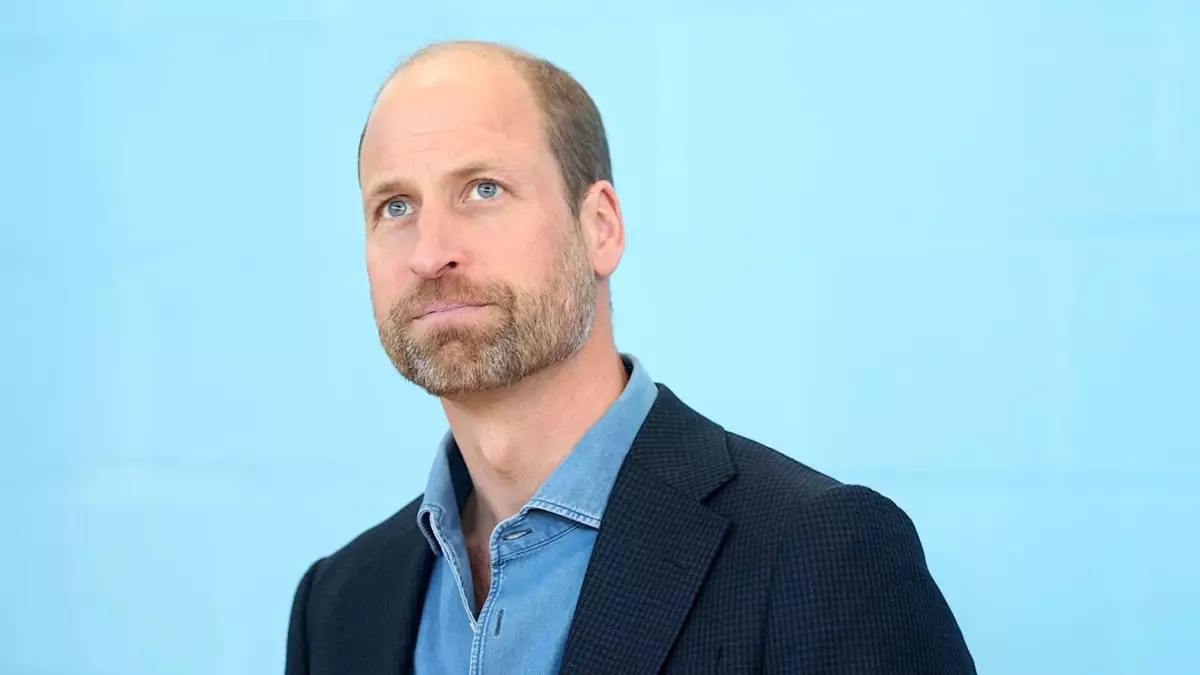In a notable shift in the management of the Duchy of Cornwall, Prince William has taken the reins with an intention that diverges sharply from centuries of royal precedent. Inheriting this vast estate in 2022 after his father ascended to the throne, the 42-year-old Duke has not only embraced the responsibilities of his role as the 25th Duke but has also injected fresh perspectives into how the Duchy can serve a greater purpose. The estate, which encompasses over 128,000 acres across 20 counties, represents one of the monarchy’s core income sources, predominantly tied to traditional agriculture. However, William’s innovative outlook seeks to pivot from a sole focus on financial gain to fostering social welfare.
Engaging with the Community
During a recent visit to Corston Fields Farm, William demonstrated his genuine commitment to understanding the pulse of those who live and work within the Duchy’s borders. Engaging in light-hearted banter with long-standing tenants, including Gerald Addicott, William’s whimsical suggestion of creating rent-free tenancies was accompanied by a serious undertone that underscored his willingness to explore transformative ideas. His candid remarks—not only elicited laughter but also highlighted his genuine interest in reforming tenant relations. By prioritizing the insights of the agricultural community, William aims to cultivate a sense of belonging and accountability among stakeholders.
Redefining Royal Responsibility
William’s ambitious initiative to redefine the Duchy’s ethos is encapsulated in his newly adopted motto: “Positive impact for people, places, and planet.” This mantra goes far beyond the realm of agricultural production; it incorporates initiatives geared towards combatting pressing societal issues such as homelessness and mental health challenges within rural sectors. His launch of a housing scheme in Cornwall, tailored to assist individuals exiting homelessness, underscores a commitment not often associated with royal estates. It is an attempt, not only to provide immediate support but also to build long-lasting infrastructure aimed at enhancing community resilience.
Fostering a Culture of Openness
Differentiating himself from traditional leadership models, William encourages a culture of open dialogue and feedback among his team. His proactive engagement—communicating through various channels including WhatsApp—invokes a refreshing sense of accessibility, showing that his royal title does not shield him from the realities of farming challenges or the emotional burdens faced by rural communities. Employees describe him as possessing a “healthy impatience,” indicative of his desire to implement change swiftly while remaining sensitive to the nuances of rural life.
Addressing Agricultural Challenges
Understanding that farmers today grapple with numerous obstacles—from fluctuating market pressures to feelings of isolation—William has appointed a “family farming ambassador” to foster additional support channels. This role signifies a movement away from traditional managerial roles, opting instead for a more hands-on approach to tenant relations. Events such as communal gatherings, tailored to foster neighborly connection and camaraderie, speak to a deeper understanding of the social fabric that binds these rural communities.
A Legacy for the Future
Despite the expansive nature of the Duchy, much of William’s impactful work remains under the radar. His thoughtful and private visits to farms and community initiatives demonstrate a concerted effort to grasp the complexities of rural life intimately. By supporting organizations like We Are Farming Minds, he acknowledges the mental health challenges that threaten to undermine the farming community. William’s vision for modernizing the Duchy while holding steadfast to its historical roots exemplifies a deep-seated commitment to revitalizing not just an estate, but the entire rural ecosystem.
In essence, Prince William’s approach is a refreshing blend of tradition and innovation, reminiscent of a new chapter in the royal playbook. By placing social responsibility at the heart of the Duchy’s operations, he aspires to redefine not just the legacy of the Duchy of Cornwall, but the role of royal influence in fostering sustainable communities.

